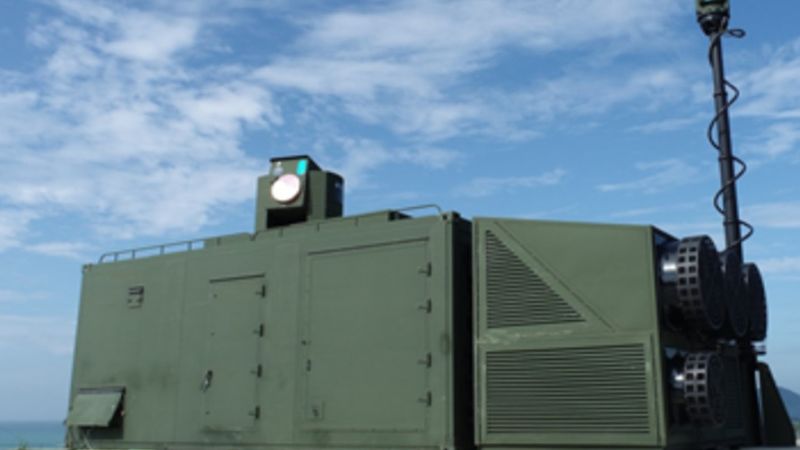South Korea is beginning the mass production of a low-cost laser weapon that has successfully shot down small drones during testing, the country’s key arms agency said Thursday.
The laser weapon, called Block-I, “can precisely strike small unmanned aerial vehicles and multicopters at close range,” a news release from South Korea’s Defense Acquisition Program Administration (DAPA) said.
The release did not give a cost for the weapon, but said each shot fired would only cost about $1.50.
Imagery supplied by the agency appears to show a weapon around the size of a shipping container with a laser mounted on top and what appears to be a radar or tracking device mounted on one side of the platform.



There is no doubt that lasers will play a bigger and bigger role in combat systems, especially in a layered air defense networks.
But it’s dishonest how these articles only cite the cost of electricity. It would be like citing the cost of a single shell of artillery to imply that is the only expenditure when the system is used.
Just like a Howitzer, the parts on lasers experience wear and tear, but to replace them cost a hell of a lot more than a new barrel.
Yes, in the long-term lasers will be more cost-effective than ground to air missile interceptors*, but any reporting that is clearly trying to make an argument for cost savings, should have the integrity to get figures that factor in battlefield maintenance of those systems.
*When applicable. Lasers will not remove the need for any existing systems, but will provide a cost savings by providing additional options for the air defense system’s operators.
When discussing deterrents against drone swarms the cost per “round” is the correct metric…
The cost per round is a lot more than just power generation when talking about lasers.
The wear on tear on lasers is a lot different than other systems and when the case is being made for their cost effectiveness they need to be factored in, instead of the highly misleading figures that only prices out electricity.
I mean, sure that’s fair, and the figures could be updated to include that. But the order of magnitude difference between this and explosive ammunition is 10,000x or more. Unless these are single fire, I’m not convinced it changes the calculus
What about the advantages of the logistics of those “rounds”. Seems like a huge savings.